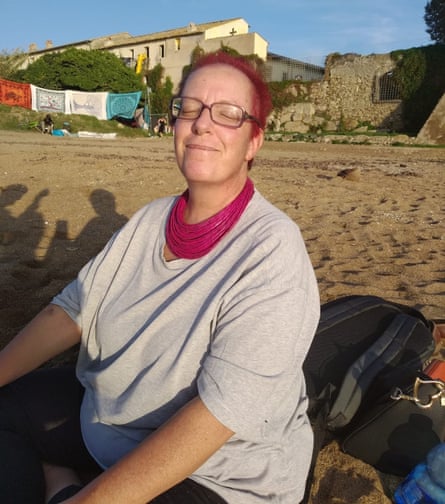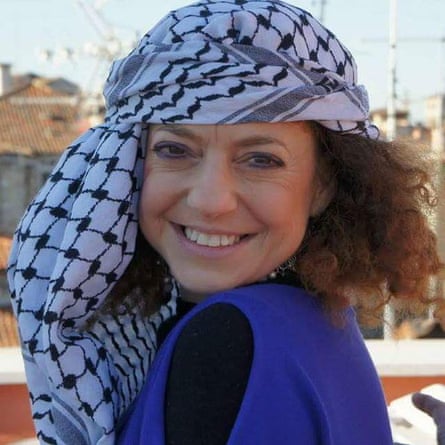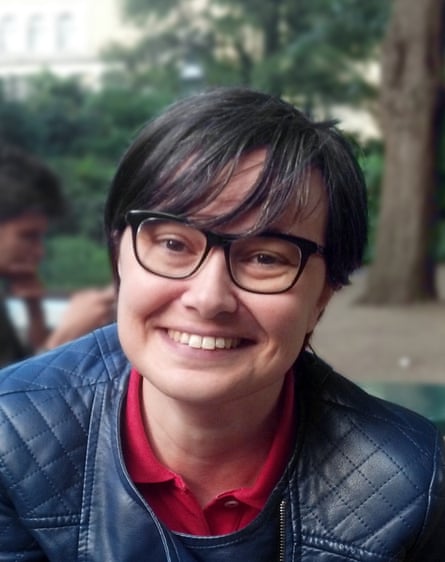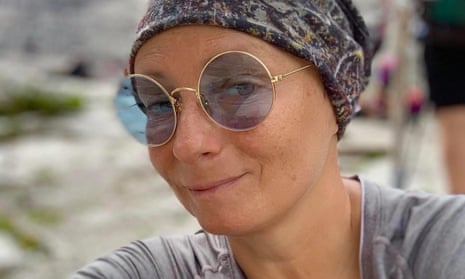Since the coronavirus outbreak hit Italy, Francesca Masi has felt her life has been hanging by a thread. She was diagnosed with myelofibrosis, a rare bone marrow cancer, in 2016 and was due to have a transplant this month, but now fears it will be postponed as the country deals with the pandemic.
Access for thousands of cancer patients in need of chemotherapy, scans, transplants and surgery has become difficult, if not impossible, in Italy’s Covid-19 emergency.
Across the country, dozens of specialist cancer wards and hospitals have been transformed to treat coronavirus, while others have closed after medical staff and patients were infected. There are now fewer beds in intensive care units for cancer patients.
“At the beginning of my diagnosis I underwent other treatments with success, but since my conditions worsened, transplant became my only option. So to be stuck in this situation make me living in a constant state of anxiety,” says Masi, who lives and works in Pontedera, in the province of Pisa. She is 46 and the mother of a 10-year-old boy. “I now run the risk of dying, which isn’t fair, because my doctors had finally located two foreign donors whose marrow was 100% compatible with mine.” International flight restrictions to halt the spread of
coronavirus mean marrow from overseas donors risks not arriving in Italy.
Research led by Codice Viola, a charity that supports pancreatic cancer patients, and seen exclusively by the Guardian, found that of 500 mostly breast or pancreatic patients appointments for chemotherapy or radiotherapy were postponed for 24% (11% with no arranged date), while 64% of surgical procedures were postponed indefinitely. More than half have had follow-up appointments rescheduled.
Dozens of patients and doctors who spoke to the Guardian fear that the restrictive measures to contain the virus are limiting access to proper medical care for cancer patients, who also represent 17% of Italian coronavirus fatalities, according to a recent study.

Francesca Pesce, 54, a professional translator and member of Codice Viola, has been living with metastatic pancreatic cancer for almost three years. This week she will leave Rome for a follow-up in Milan, one of the cities worst affected by the virus.
“At least I have this option, which others don’t,” she said. “On the one hand, cancer patients are afraid of contracting the virus in hospitals, so they forgo their treatments; on the other, hospitals have been forced to cancel their appointments as many oncologists and anaesthetists have been moved to other wards to assist in the Covid-19 emergency.”
Paolo Ascierto, an oncologist at Naples’ Pascale hospital now treating coronavirus patients, said converting cancer wards to Covid-19 units could be risky. “I understand the state of emergency, but we mustn’t forget that cancer patients require dedicated and specialised treatments. There are special conditions, like patients in follow-up, that can be managed safely using online consultations to monitor the patient’s progress.
“But there are other conditions, such as metastatic patients, that must be prioritised, because a lack of constant attention can mean the difference between life and death.”
In Ortona, Abruzzo, protests erupted following the announcement by local authorities that the only hospital in the region specialised in women’s cancer treatments was to be entirely converted to treat Covid-19 patients.
Where cancer wards are functioning, certain diagnostic procedures, such as endescopies, may be limited, and a decrease in blood donations is limiting surgical options. “At the moment, only urgent surgical procedures are being performed,” says Pesce. “And even urgent procedures are now stymied, because of a shortage of blood due to the coronavirus emergency.”
The closure of air routes to and from Italy has also made it virtually impossible for thousands of cancer patients to access treatment in other European hospitals.

Alessandra Capone, 47, a dancer, feminist and human rights activist, has been living with breast cancer for 10 years. In 2015 it spread to her liver and lymph nodes and last year she began a series of treatments at University Hospital in Frankfurt with just 5% of her liver cancer-free. She is now facing enormous difficulties travelling to Germany.
“I contacted the Ministry of Foreign Affairs and International Cooperation but the line is always busy and I couldn’t speak to anybody. Then I contacted the Italian consulate in Frankfurt. They told me I need a number of certifications for travelling to another country, even for health reasons. Not to mention that in Germany very few hotels are accepting reservations, especially from Italians, during this emergency. It’s very stressful.”
For the first time, however, the Italian government last week authorised an air force flight to Turkey to secure haemopoietic stem cells from a donor for a two-year-old boy whose condition had worsened.
Travel is also limited within Italy, where patients from Sicily, Puglia and Calabria often undergo treatments and operations in richer Veneto and Lombardy, which are among the worst affected regions in the country for Covid-19.
Grazia De Michele, 39, a blogger and researcher in the history of medicine, lives in Foggia, in Puglia, and has been living with breast cancer since 2010. A few months ago, her mother was diagnosed with pancreatic cancer. “My mother was supposed to have a CT scan in March to see if the chemo she’s on is working, but the scan was postponed,” she says. “I was supposed to undergo an oophorectomy, and my operation was postponed as well.”

“You have to imagine what it’s like for cancer patients,” says Capone. “Many live in a constant state of anxiety, with the fear of dying. The situation caused by the coronavirus emergency has put them under enormous psychological and physical distress. You see, you can protect yourself from coronavirus by staying at home, but it’s not the same with cancer. Cancer doesn’t follow the diktat of quarantines or decrees. It keeps going, in war and in peace.”
